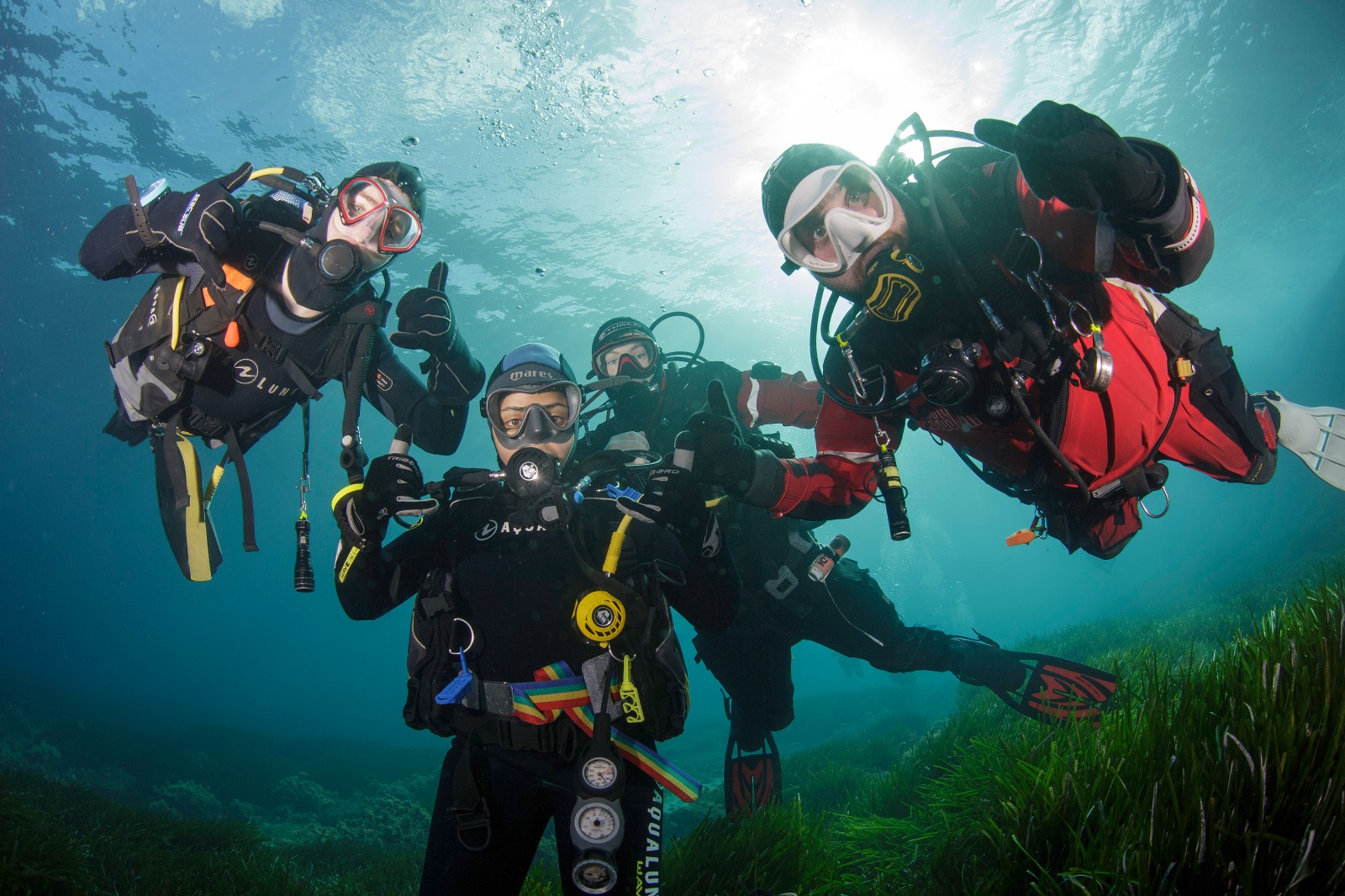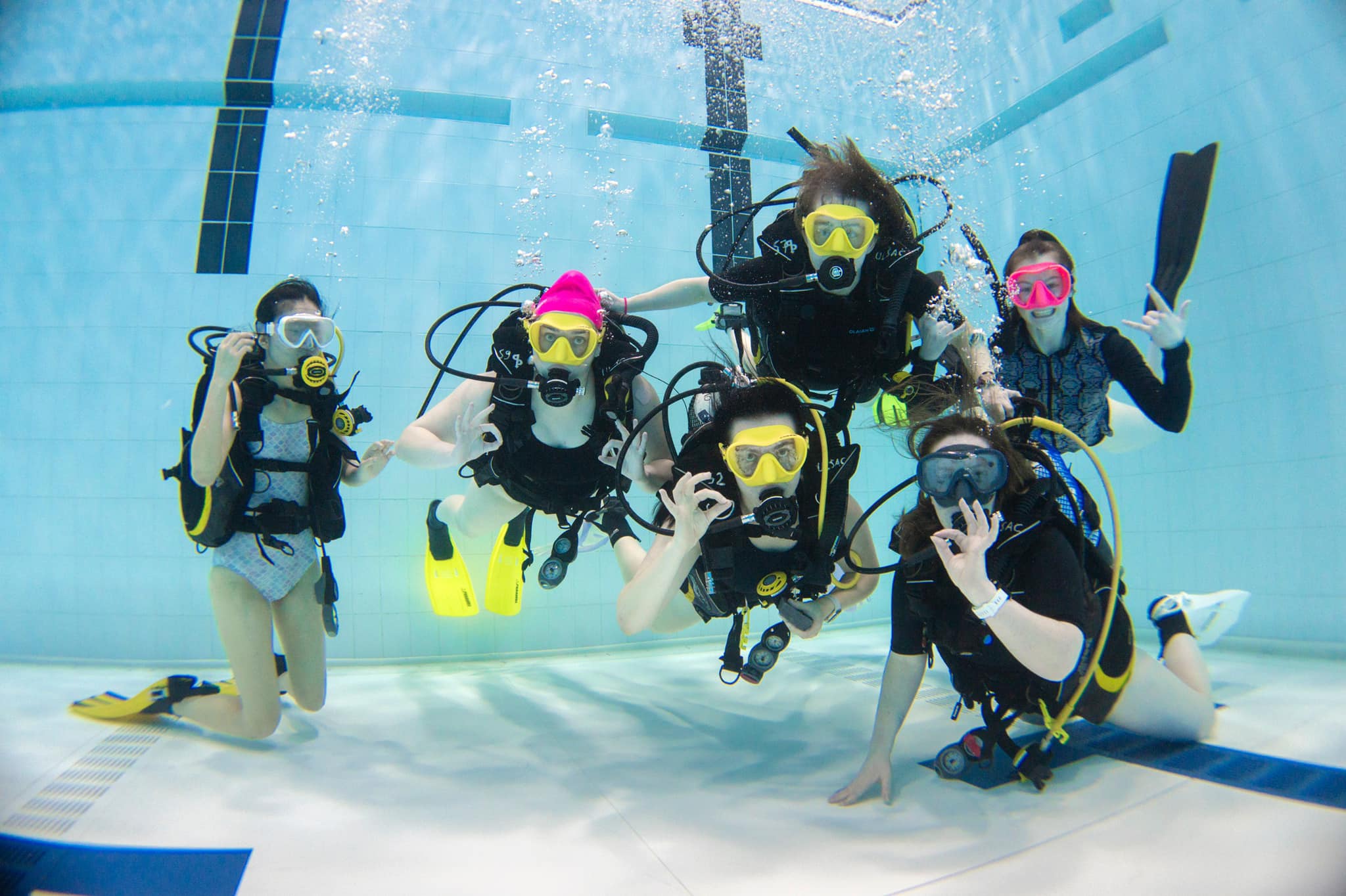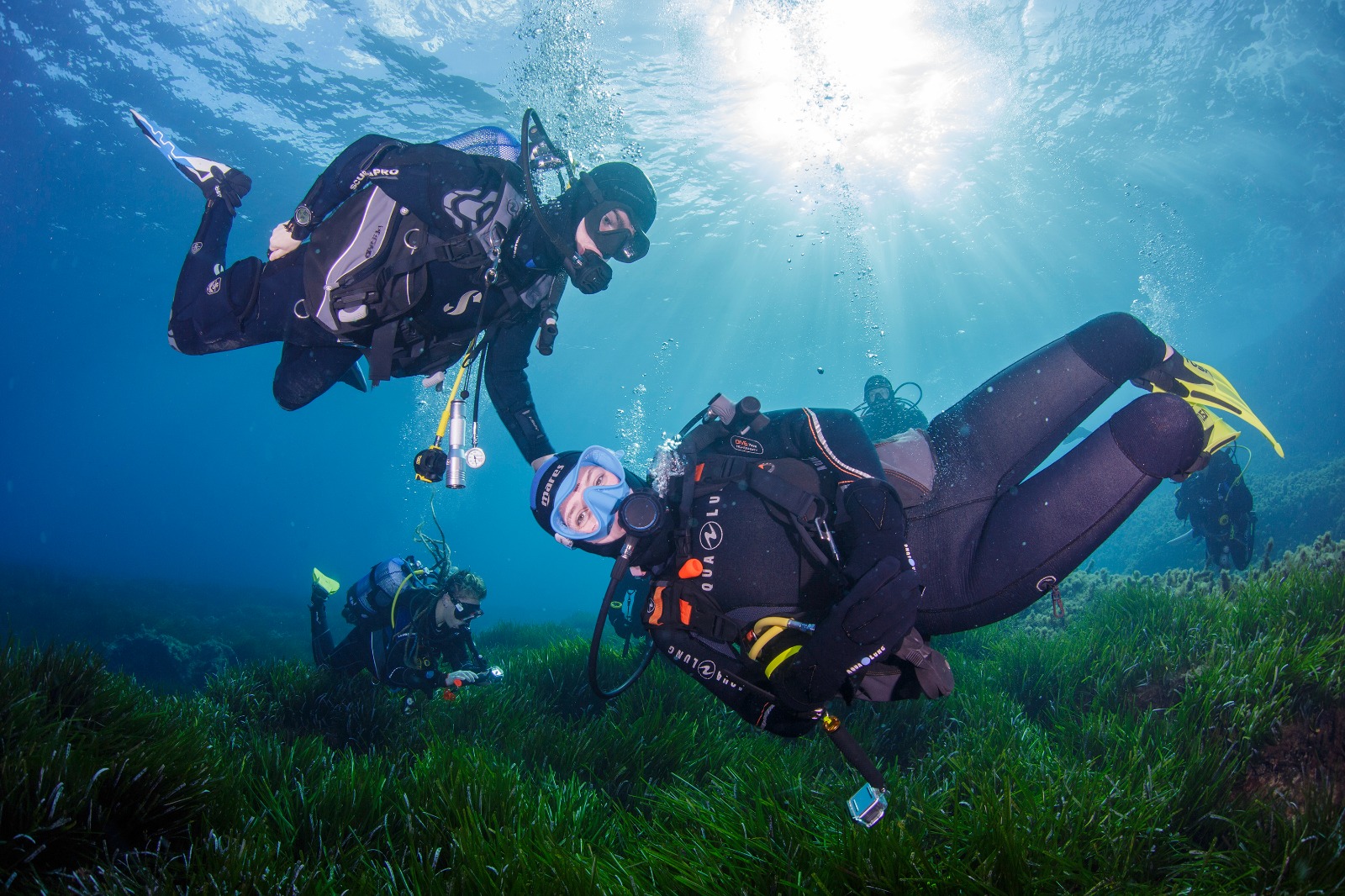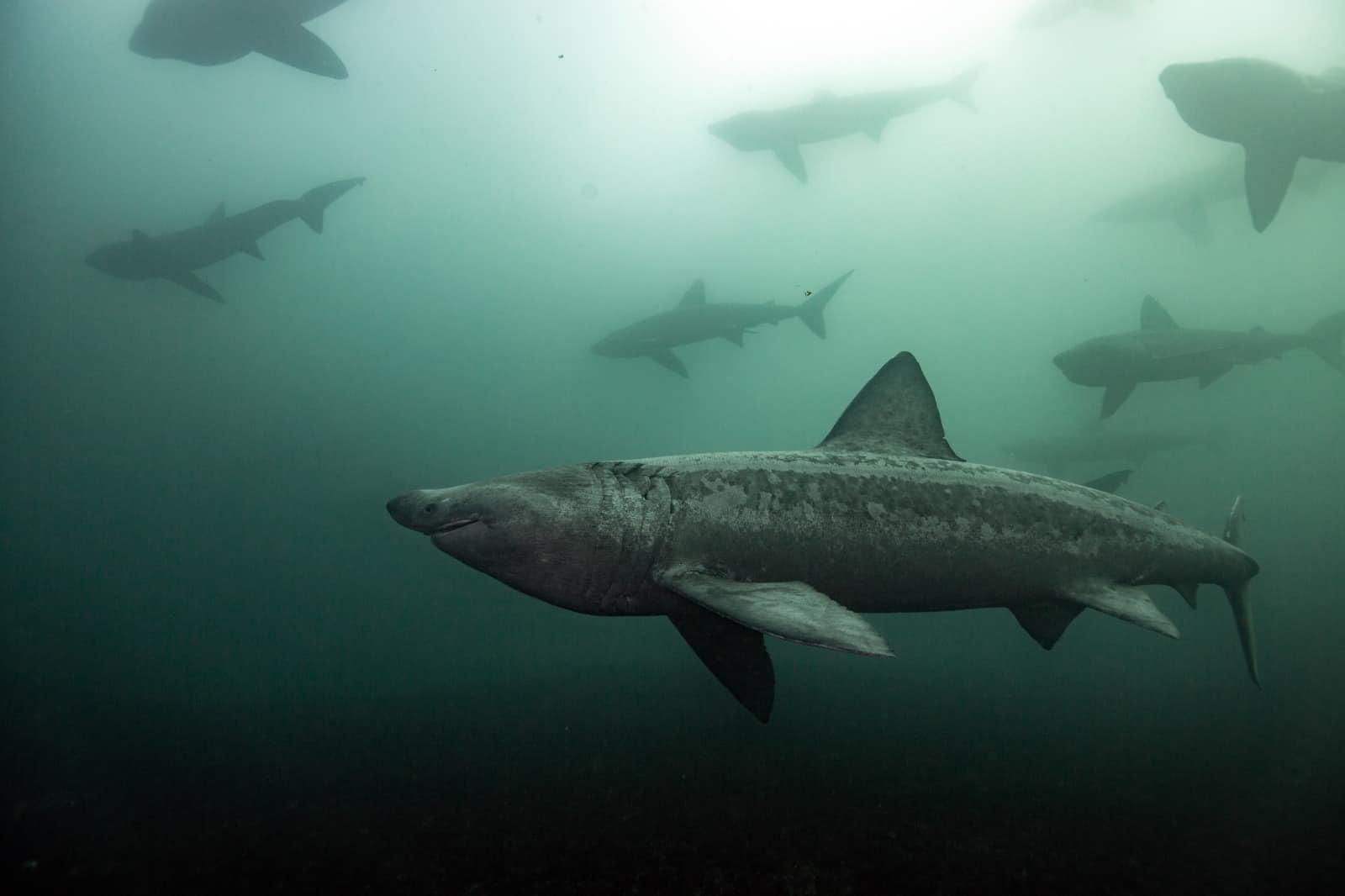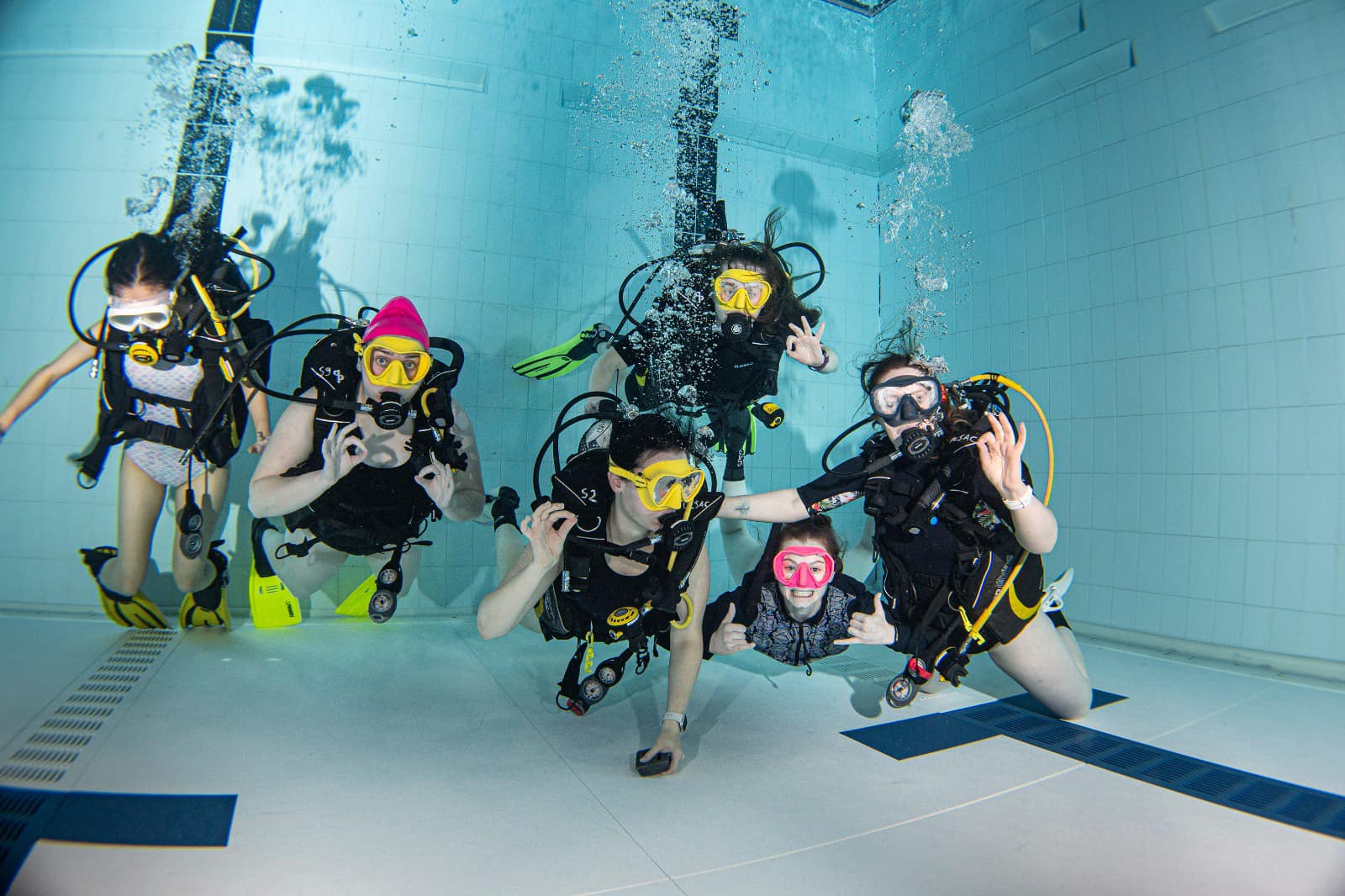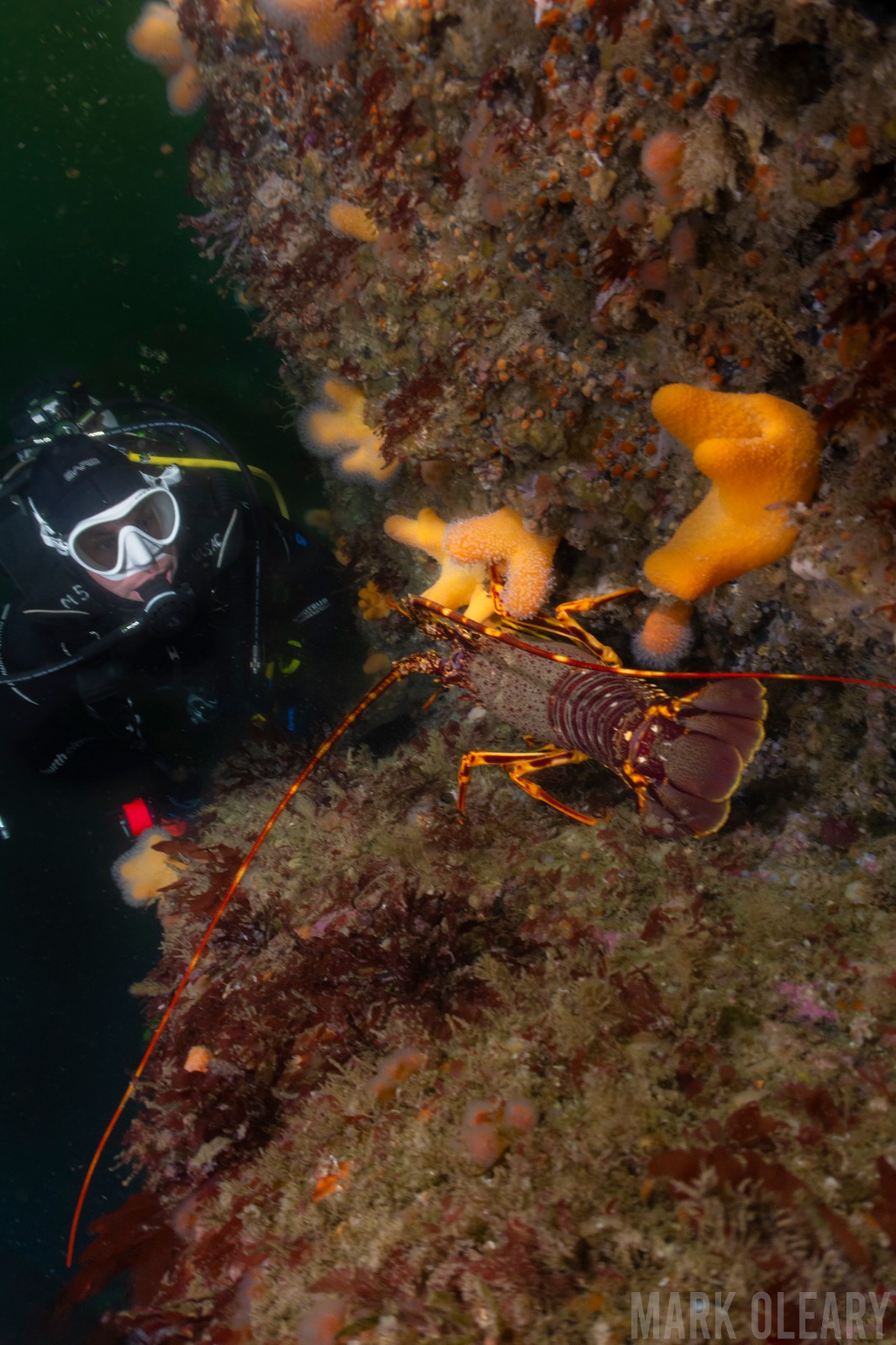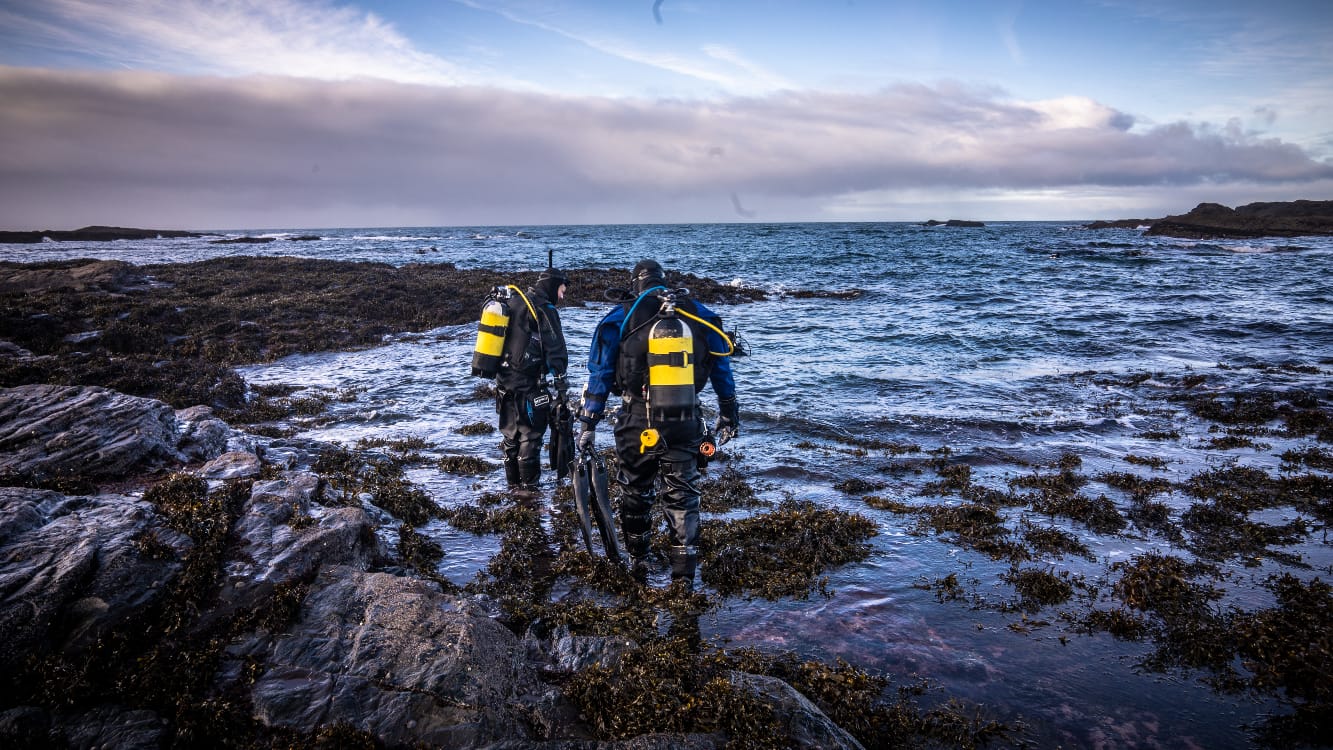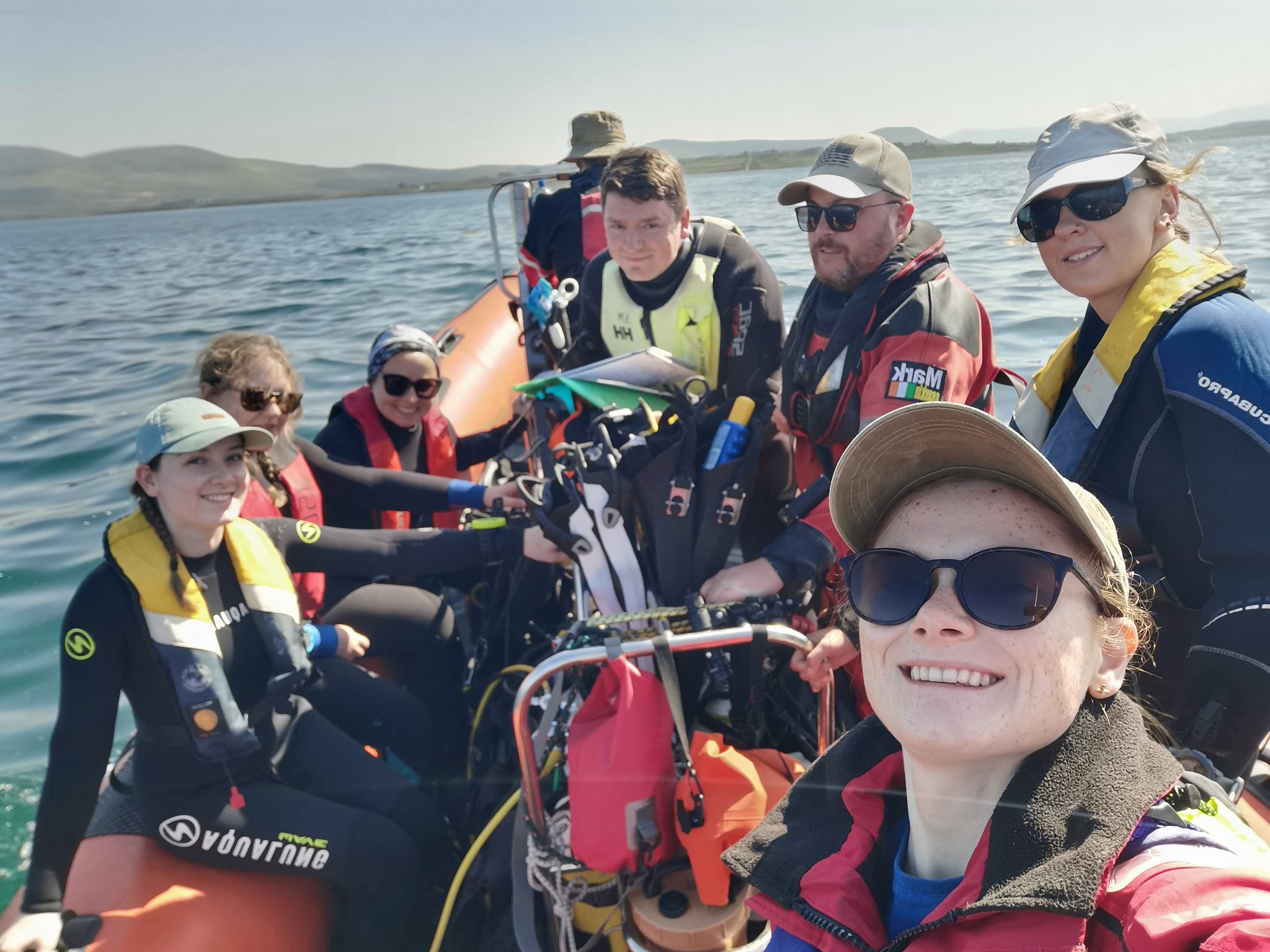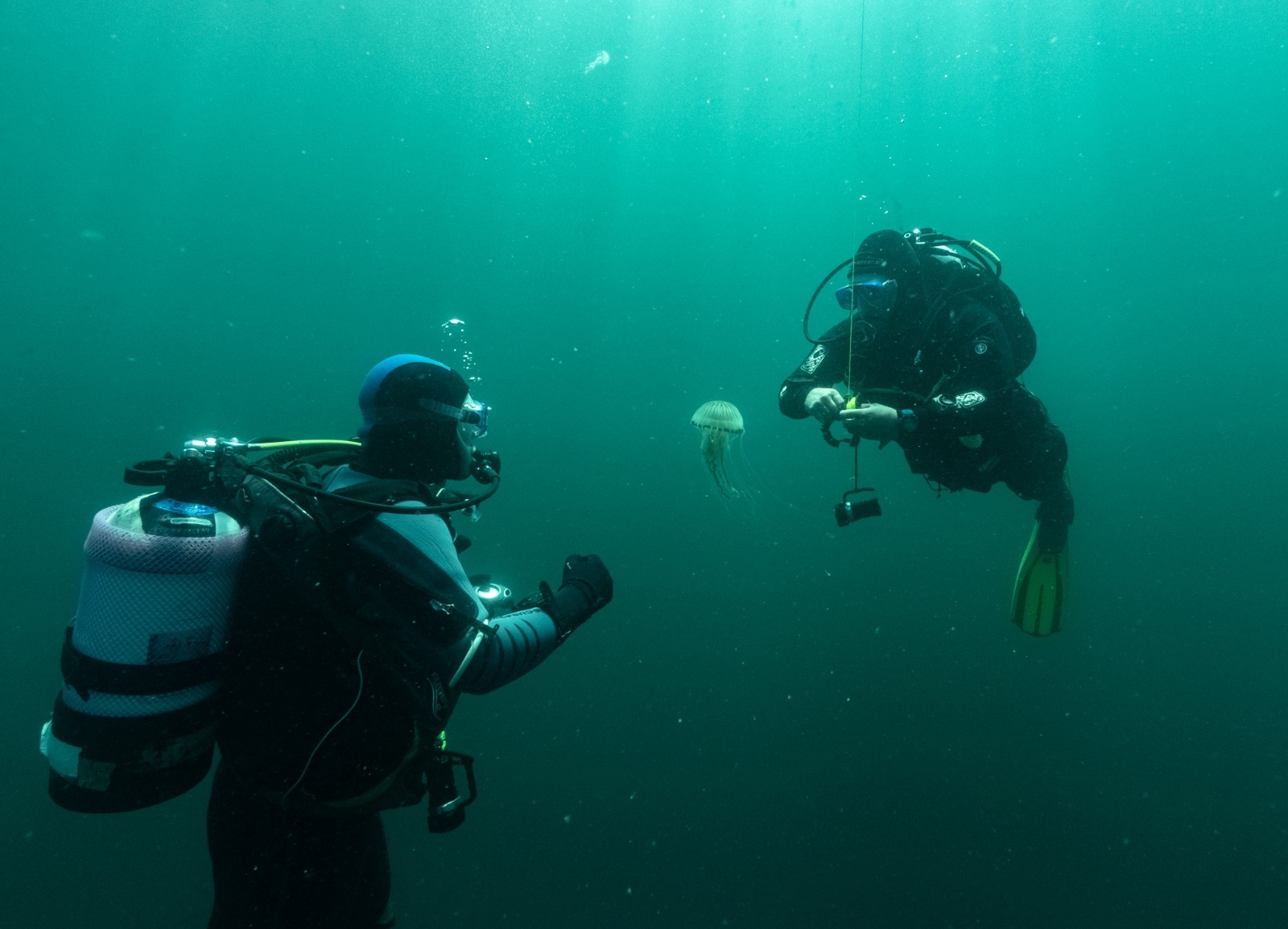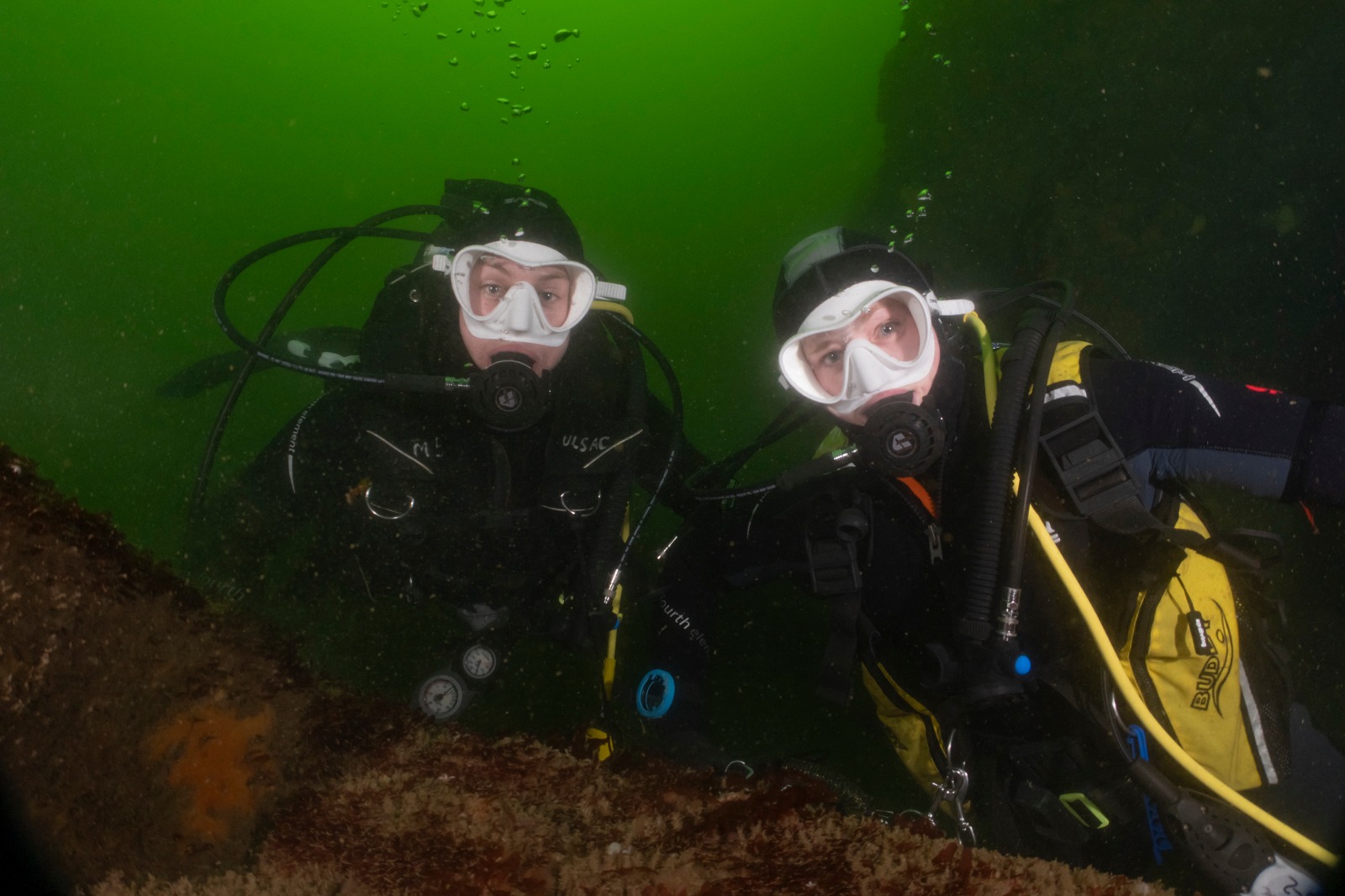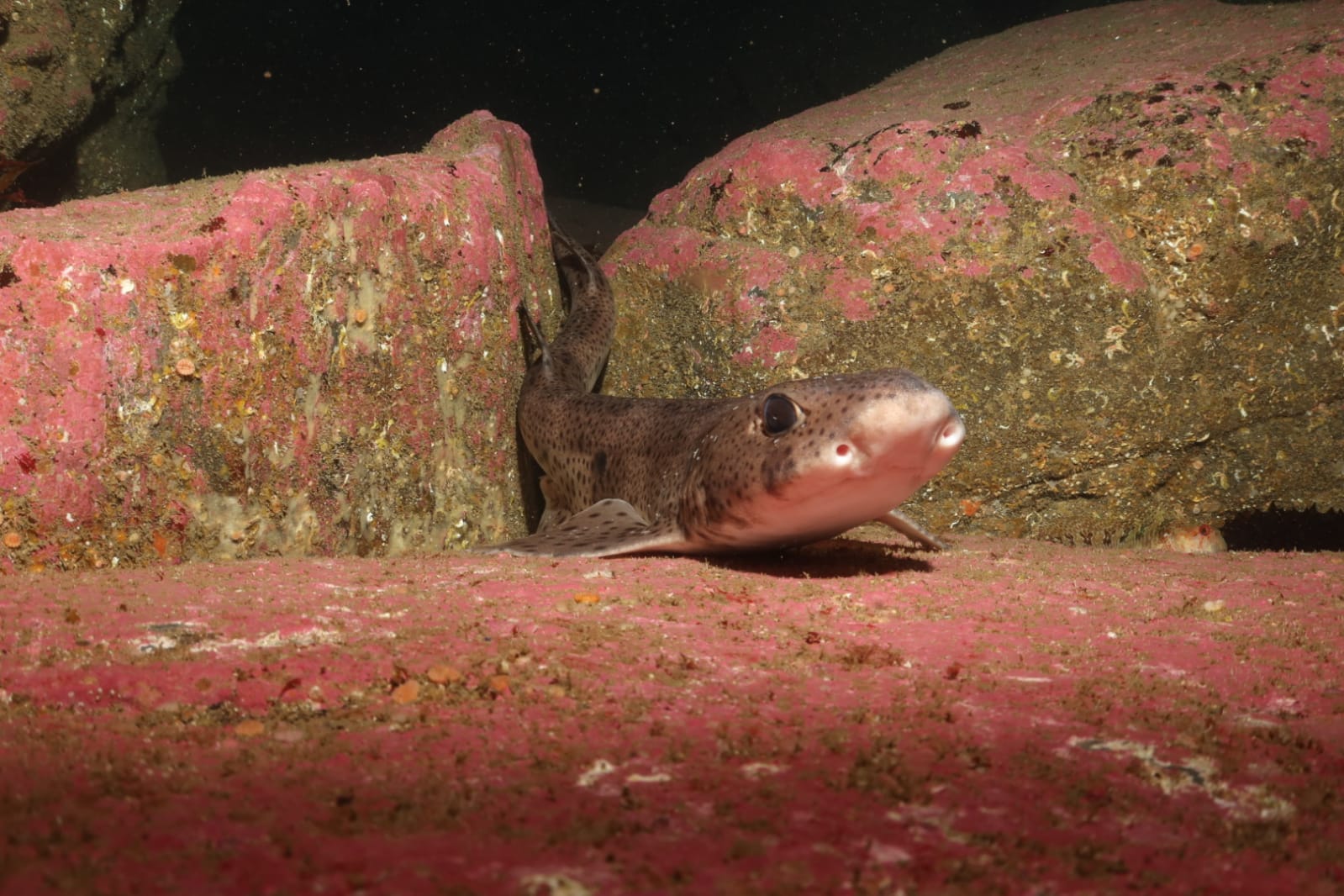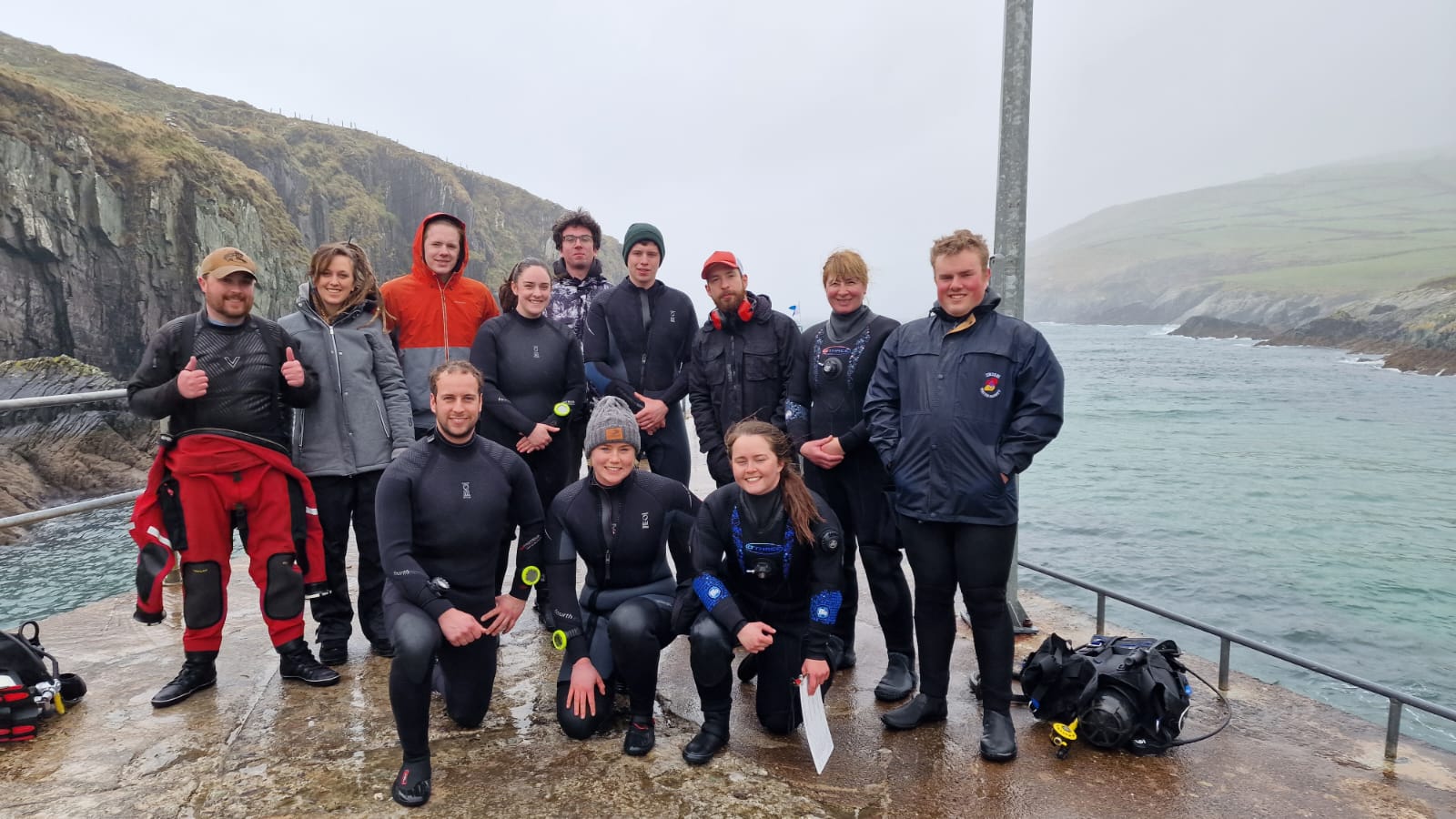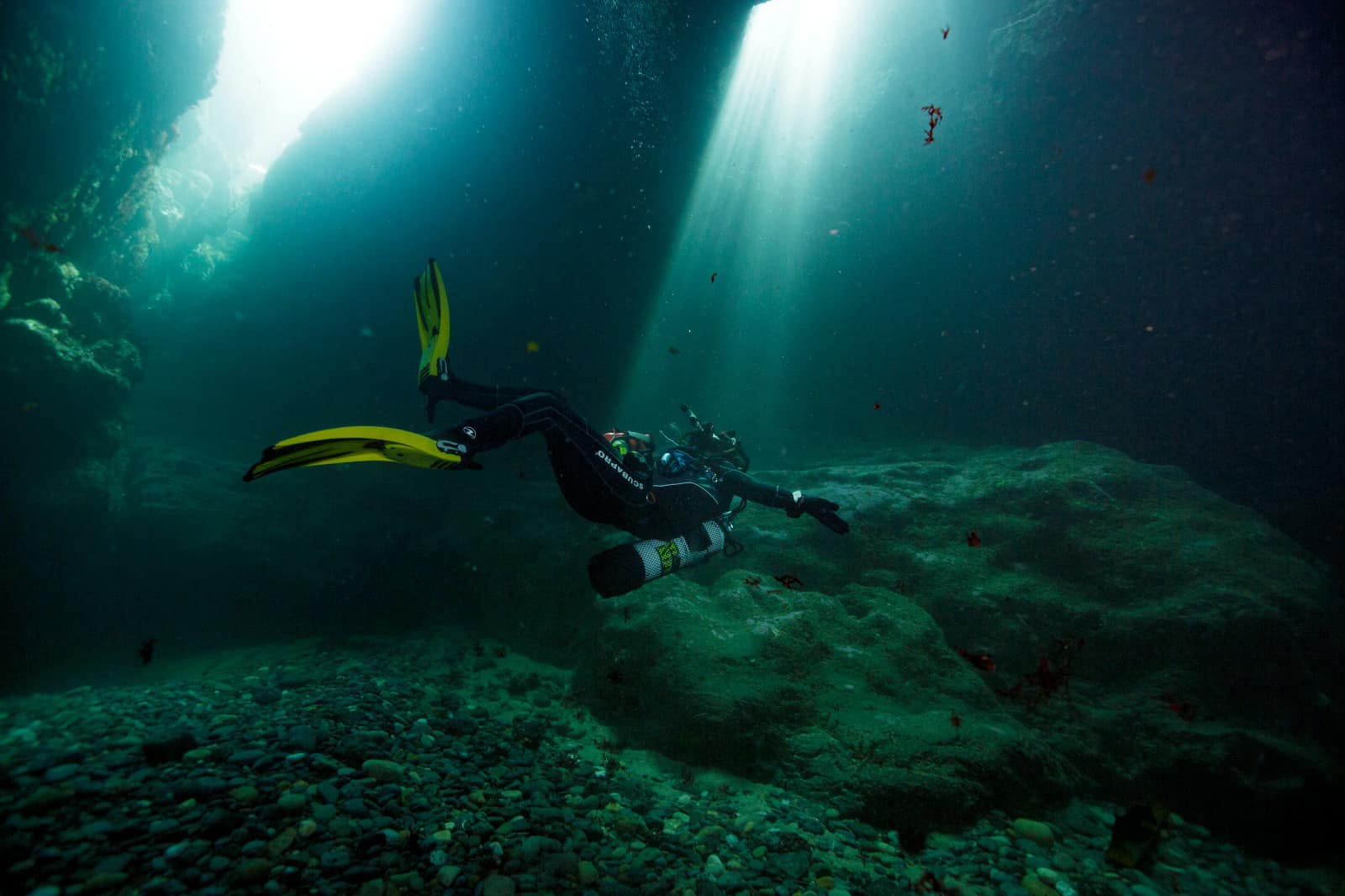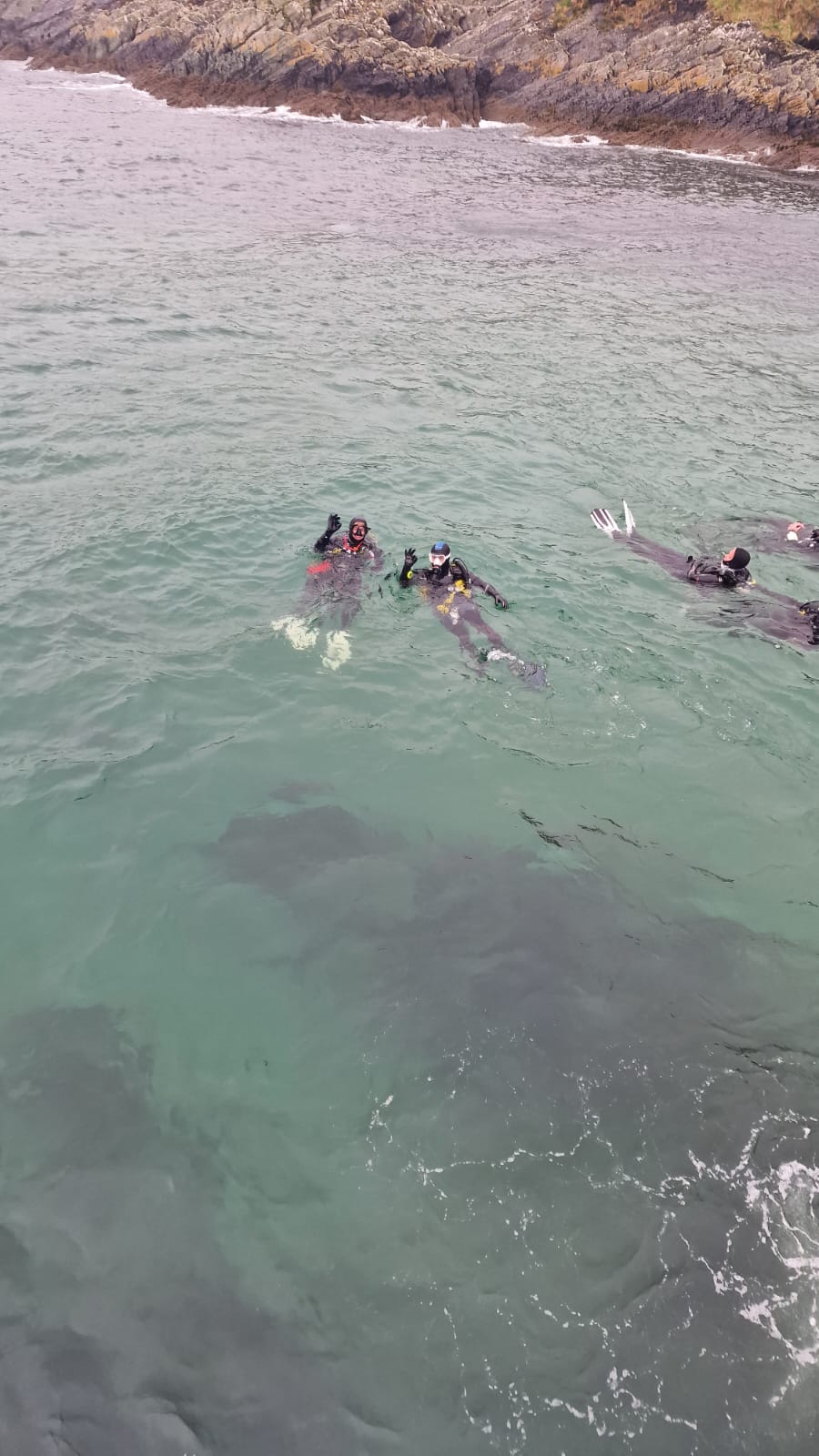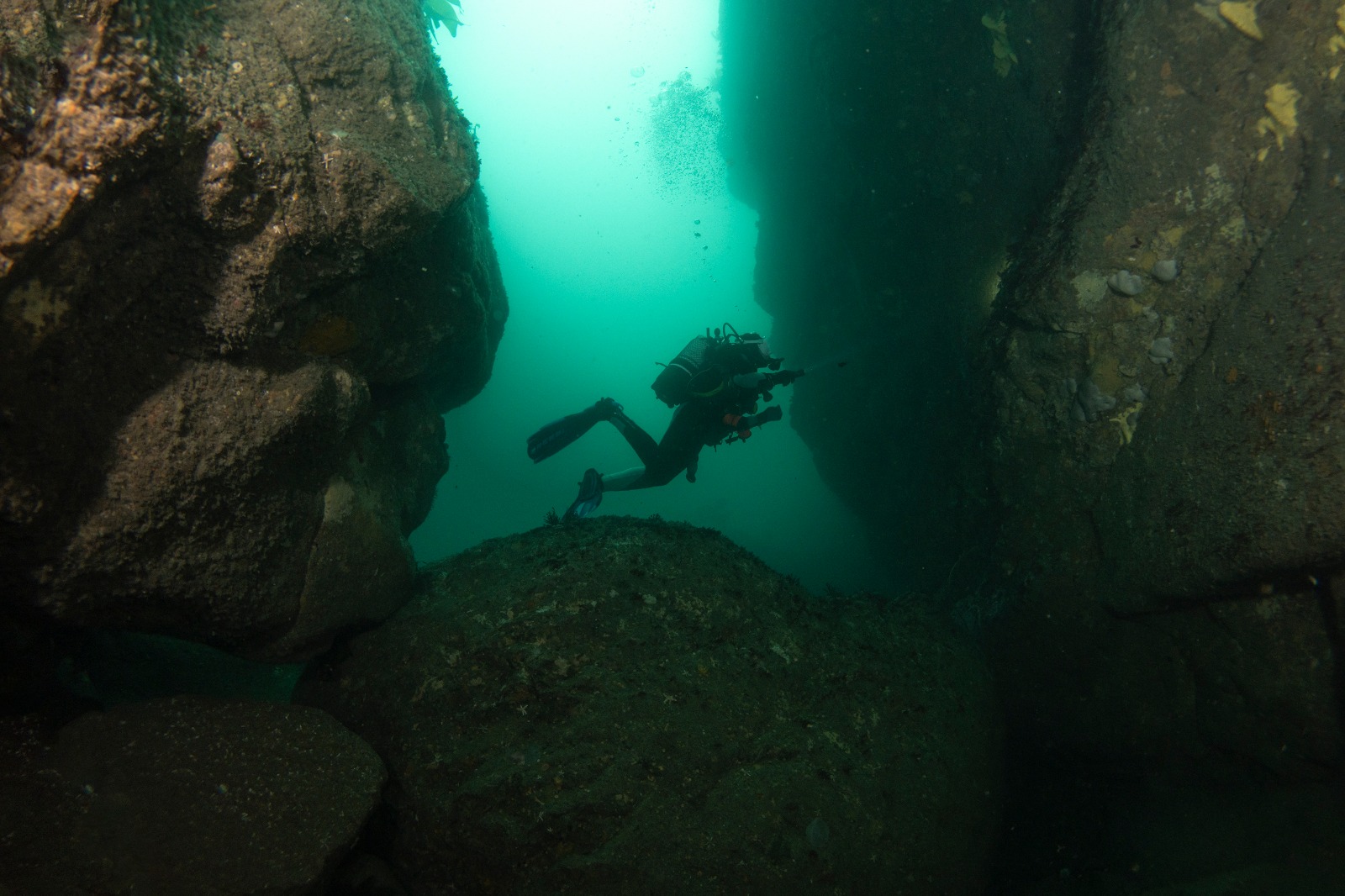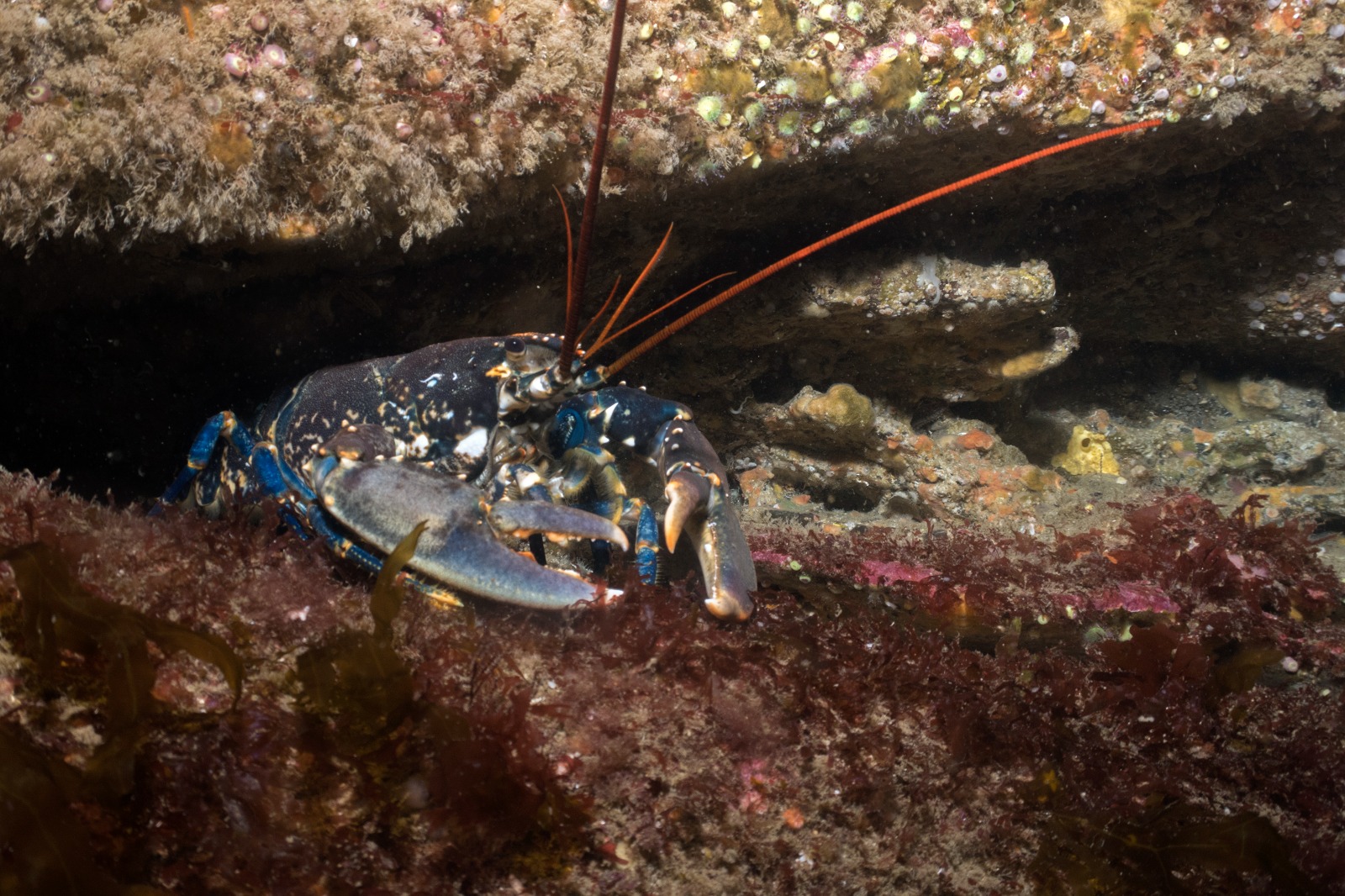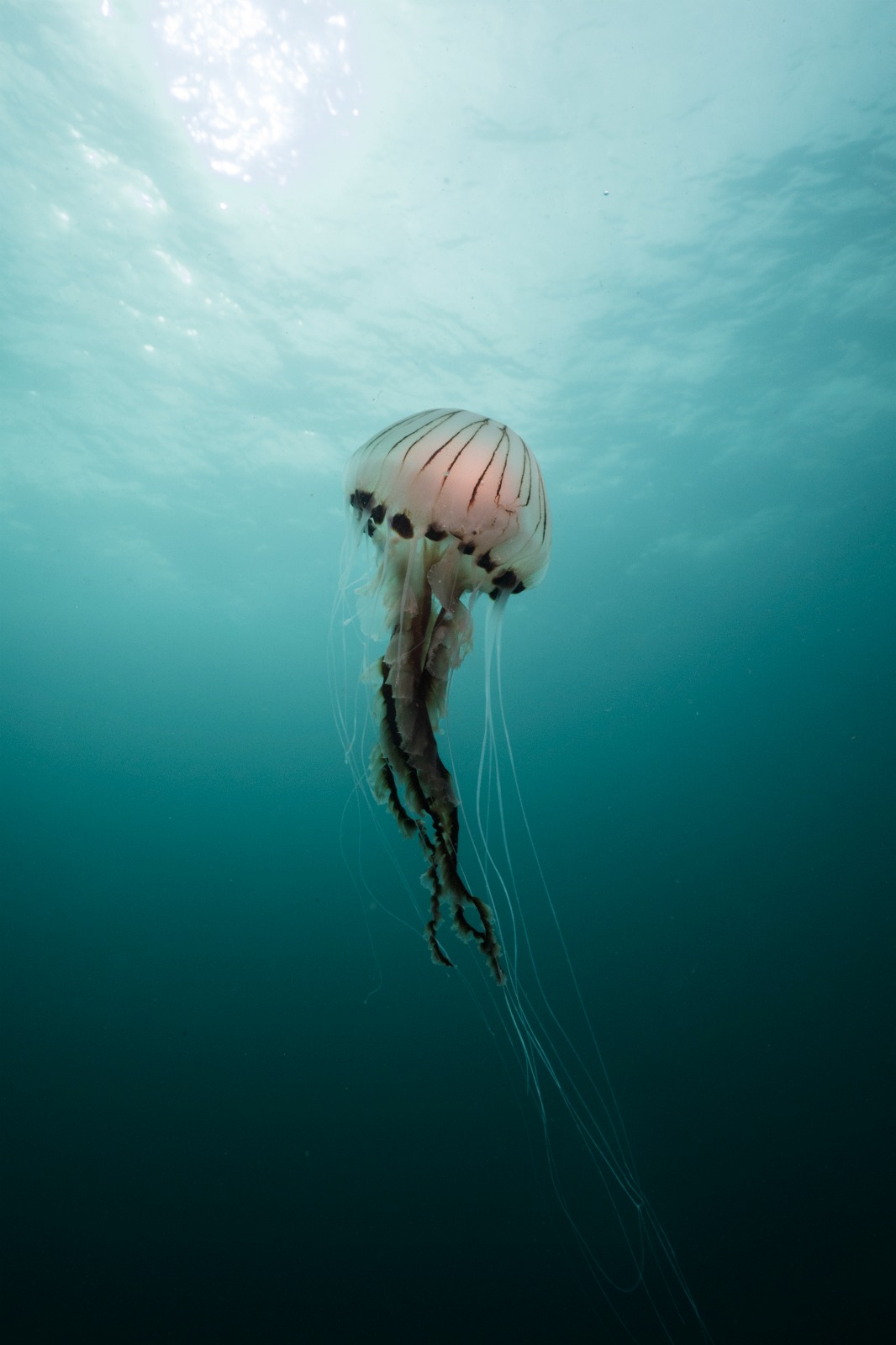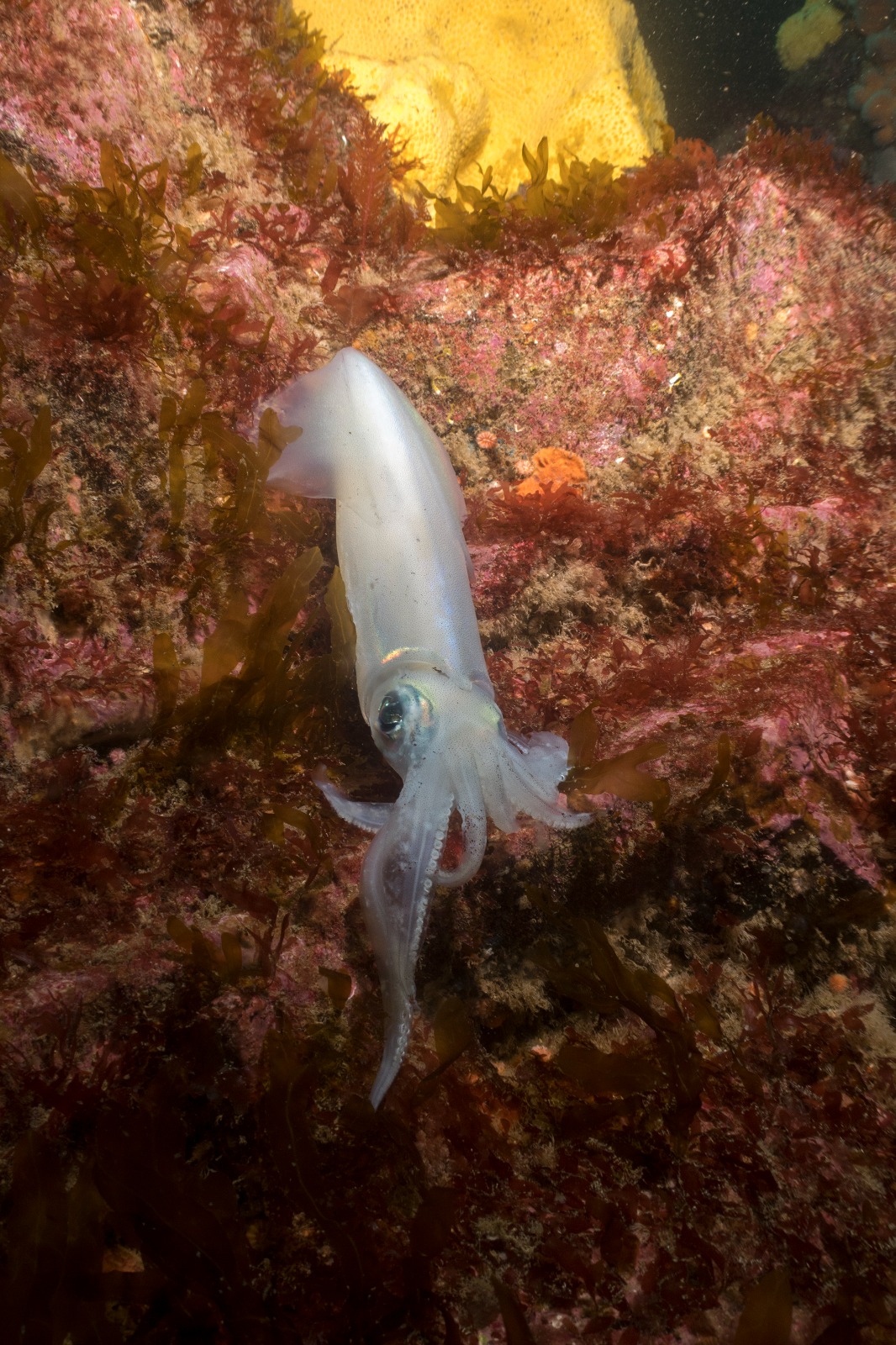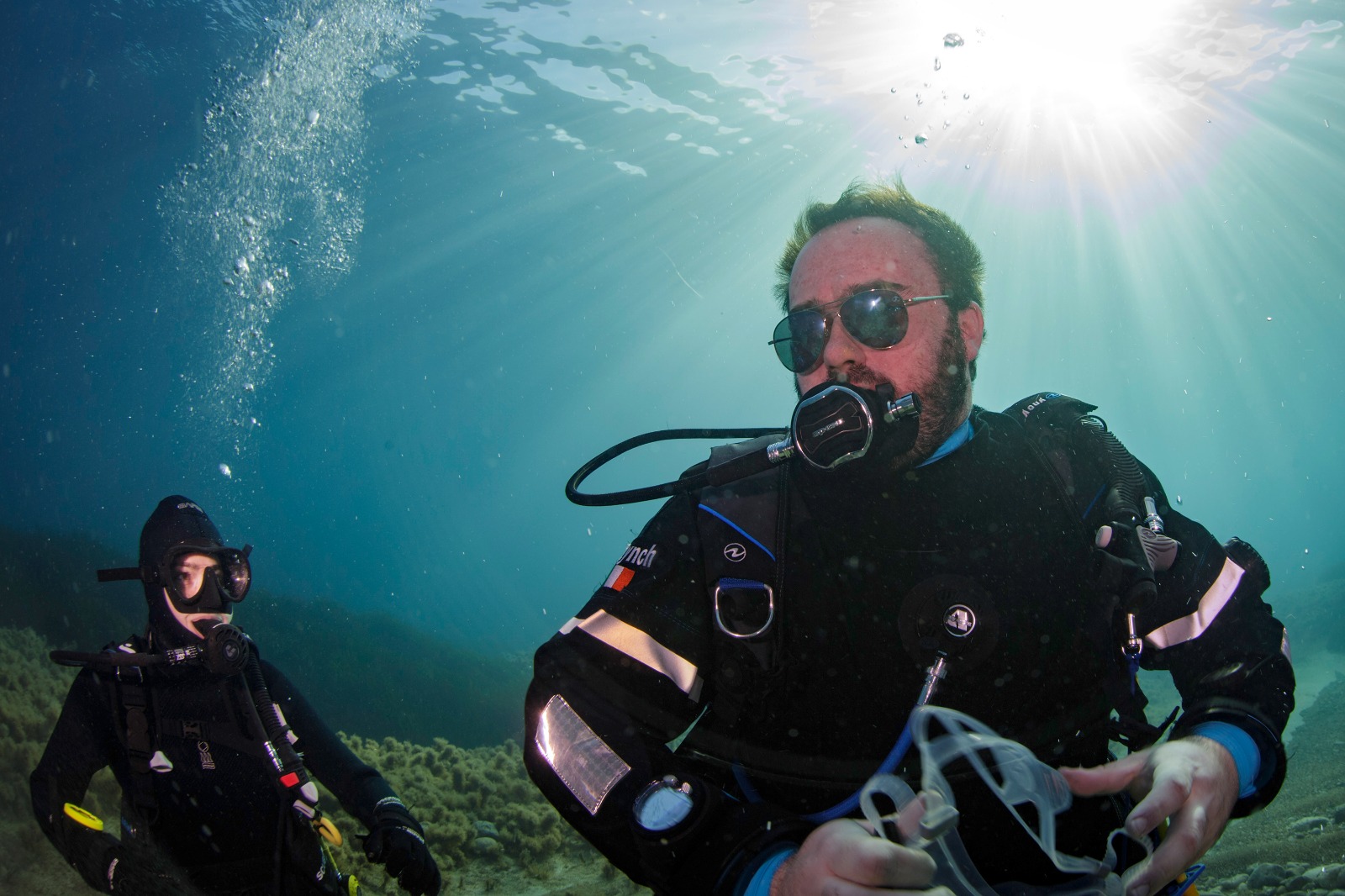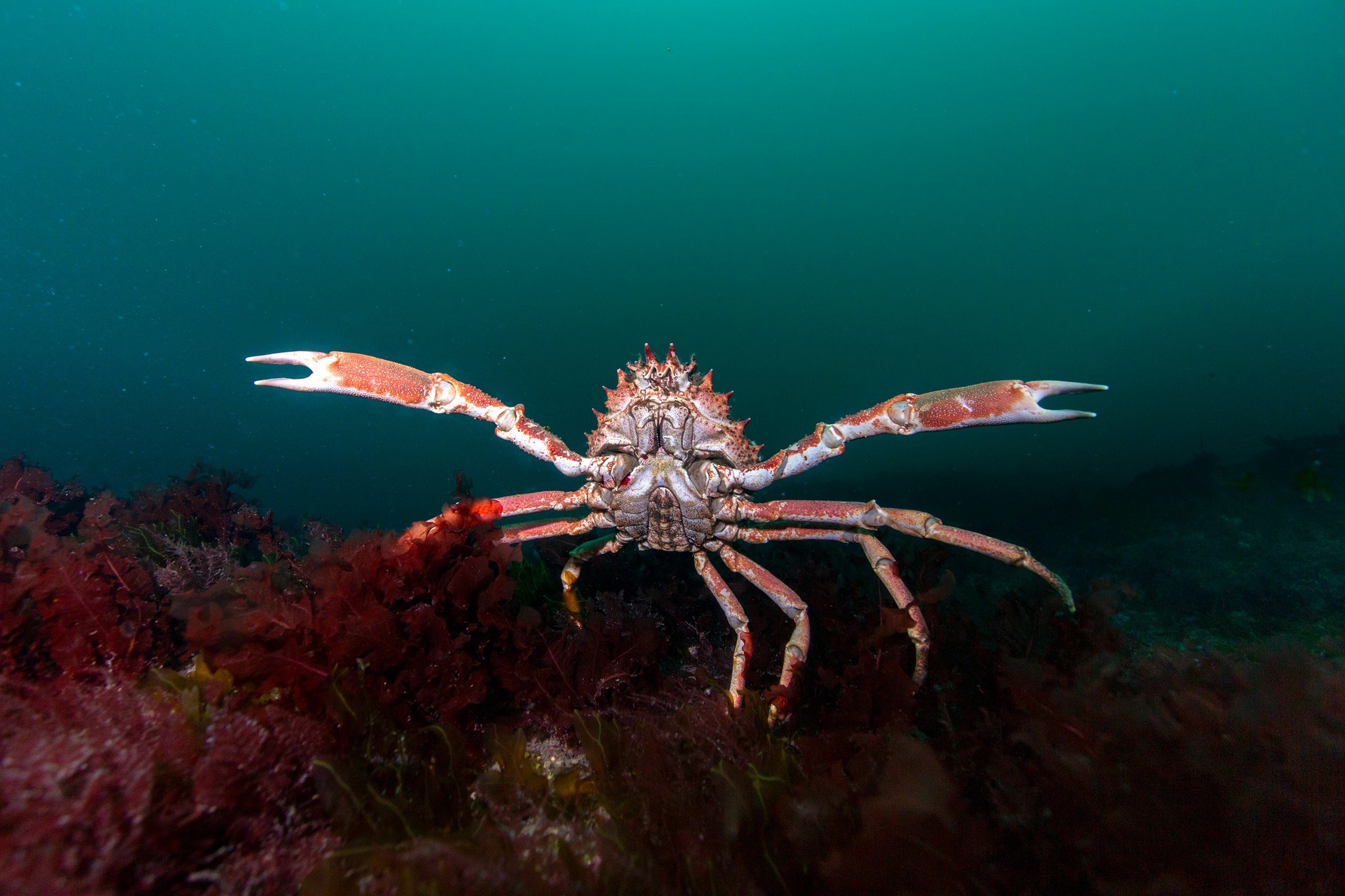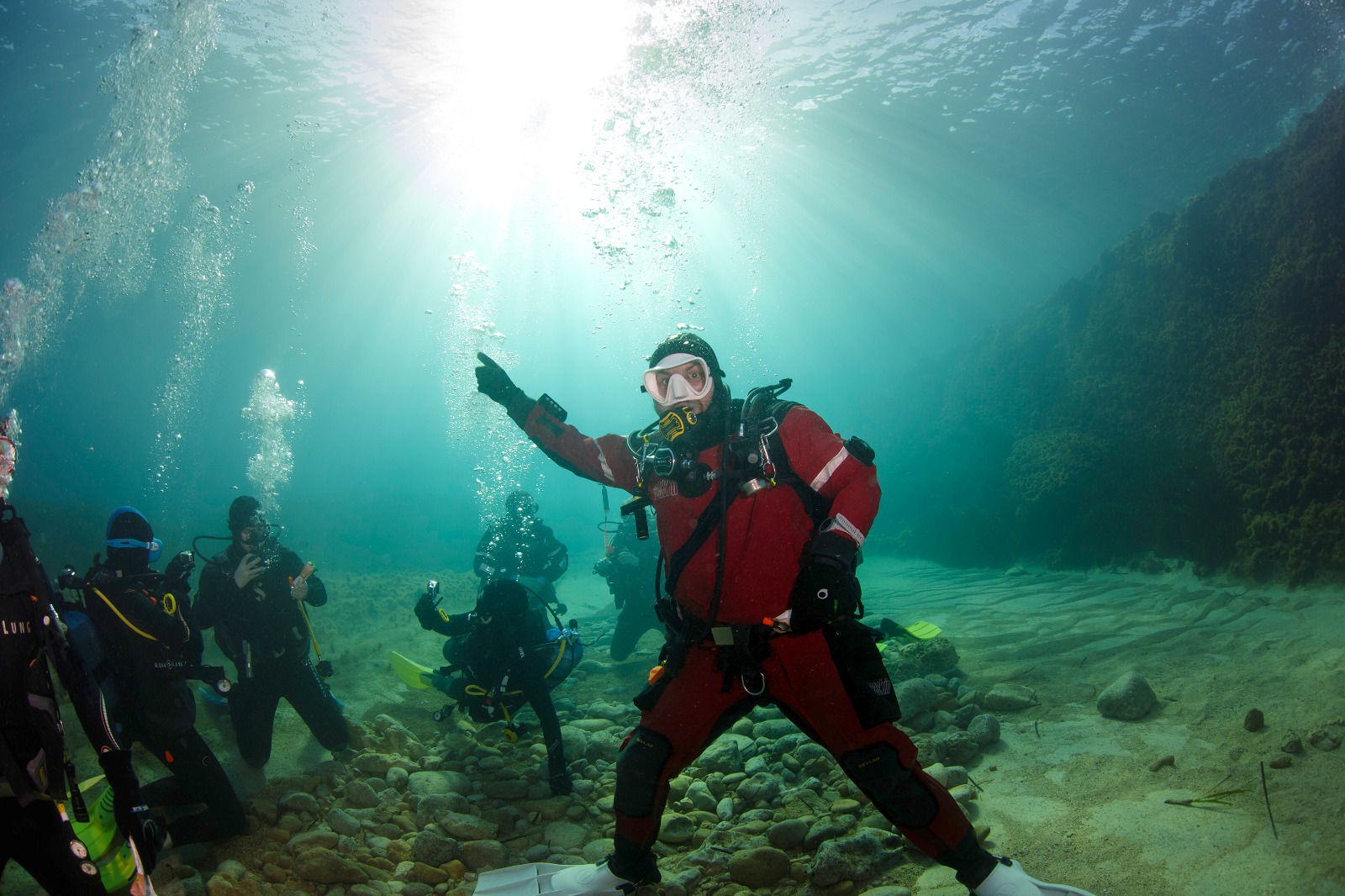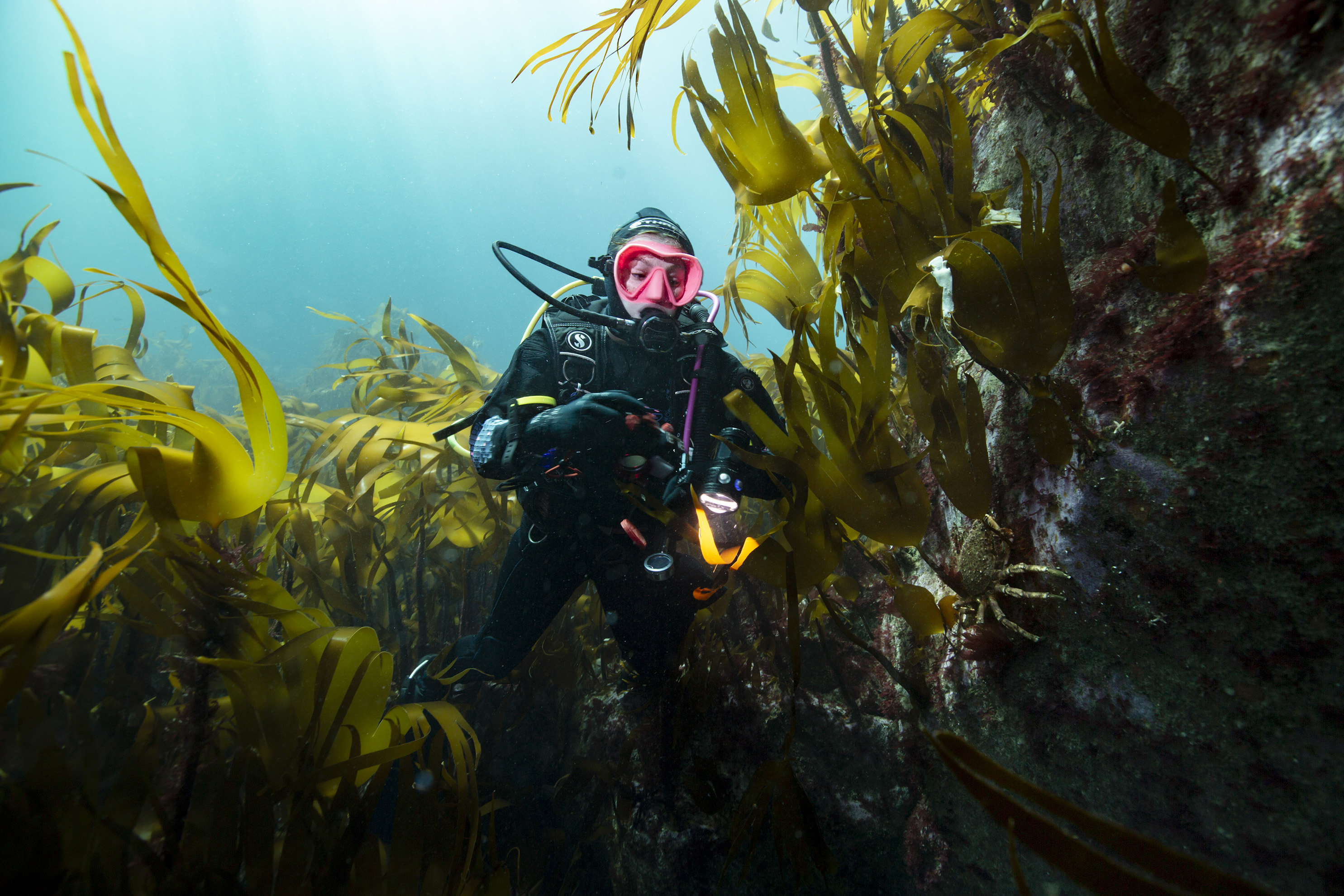Sub Aqua Club
Life's a beach and then you Dive! ~ If you have a dive qualification let us know!
Sub Aqua Links
Sub Aqua FAQs
| Can I become part of the committee? |
|---|
| We are always delighted to have people who want to help run the club. In fact it is vital that everyone volunteers in some capacity to keep the club running. We have elections twice a year for committee positions however you can always join in to organise events, as well as helping experienced members to organise dives and trips in general. Shoot the chairperson a message with your vision and how you would like to participate. |
| Whom do I contact if I have a question? |
| If you have a question that is not answered by the FAQ feel free to either message us through the "send a message" function on Wolves or write an email to ulsac.chair@gmail.com or ulsac.secretary@gmail.com |
| When and where is the dive training? |
| Our club's training officer coordinates the schedule and resource for diver training. Communication & updates are sent to members regularly of when we have courses commencing. Typically, we organise a Diver 1 Star course to kick off in Sept and the Diver 2 Star courses runs directly after. Exact dates will be communicated at our Newbies Intro Night, but training is typically on TUESDAY nights. We start with theory lectures around 6:30pm, followed by a pool training session at 8:30pm. To complete training you must attend both sessions each week! |
| Can you teach me how to swim so I can join the dive training? |
| We are not qualified to provide swim training. If you fail the swim test we cannot accept you as a member of our club. You can of course repeat the test in the next academic year. Please look at the Question about the swim test for further information. |
| Can I dive with a medical condition? |
| If you have a medical condition please consult with a doctor whether you are fit to dive or not. |
| Do I have to complete a swim test? |
| Yes, every member must complete a swim test when they initially join. It is an annual requirement for our members to complete a fitness to dive swim there after. It is a mandatory requirement as part of our regulatory body's code of conduct. The initial swim test requires you to swim 200 meters freestyle without stopping, 50m back stroke without stopping and to hold your breath for 30seconds while head is submerged within 5mins of swimming the pool lengths. There is no time limit for completing the distance requirements. |
| Do I need to complete a dive medical? |
| We no longer request mandatory dive medicals for new members. You will be required to fill in a confidential diving medical disclaimer online. If, as a result of the disclaimer, there are underlying health conditions you may be required to provide a medical report. Most people do not have any restrictions but if you suffer from common conditions such as Asthma, heart conditions, claustrophobia, fainting episodes, etc. you will most likely be required to consult a medical professional or your GP. This will also be the case if you take medication like anti-depressants on a regular basis. If you have further questions or wish to discuss more our diving officer can help. |
| I requested membership but was told to come back at the beginning of semester 1, why? |
| We would love to be in a position to accept all membership requests all year round but regretfully it's not practical. With novices or inexperienced divers it can take at least a full semester to train you up to achieve an initial diving certification and likely a full year until you are an autonomous diver that can dive in a buddy pair without instructor supervision. We have a limited number of volunteer instructors and the club has 25 full sets of scuba diving equipment. In order to ensure we deliver high quality training that is safe for all we restrict our intake of novices based on the resources we have available. As a result, we ask everyone to register in Sept at the recruitment drive and give full commitment to achieving their certification. |
| What kind of things do you see when in the water? |
| In Ireland especially, there is a lot of variety. We have wrecks, reefs, kelp farms, sand coves, big landscapes, underwater sea arches and many more. Often crustaceans and shellfish are plentiful like spider crabs, lobsters, mussels, cockles, topshells, limpets, etc... It is common to see things like dogfish, sea urchins, various species of seaweed like kelp, sea lettuce, carrageen, bladder wrack, and some brown/red algae. The big tick items that a lot of divers enjoy seeing are dolphins, seals and the odd whale or basking shark. Seeing these are jackpot for underwater photographers. Other's enjoy the colourful life from jewel anemones or blue ray limpets. Hunting for the hard to spot nudibranchs is a favourite pastime among many Irish divers, you really have to have a keen eye for those. If your dive visibility wasn't on the epic side the sea cliffs and rocky outcrops of the mainland and many islands off the coast offer sanctuary for seabirds, such as Puffins, Gannets, Guillemot and Fulmars. We have fun watching these from the boat. |
| How do you fill your tanks? |
| Our club maintains a fixed electric and portable petrol compressor for filling our tanks. Our established members can teach novices on how to fill tanks as part of their diver training. In the club everyone has a role to play and filling tanks each week is a task we delegate and everyone helps to complete. Fun fact: It's a misconception that our tanks are filled with oxygen. They are primarily filled with air, which is 79% Nitrogen and only 21% Oxygen. |
| Do you have a boat and can I drive it? |
| Yes our club owns the majestic Plassey Bird, a 7.4m RIB which was custom built for diving. We are very fond of our club boat and we go to great efforts to look after her well. Typically, we would run training for our members to learn how to drive the powerboat once a year. It's a comprehensive Diver Coxswain course that teaches you how to launch/recover, drive the boat and look after divers in the water and onboard. You must be a qualified powerboat coxswain or under a coxswain instructor's supervision in order to drive the club boat. |
| I already have diving experience or a qualification, how do I join the club? |
| If you already have diving experience or a certification we absolutely would love to have you as a member. Many try diving abroad or on their travels and when they return to Ireland they wish to keep the sport up as a hobby. Contact our committee members to discuss. In these instances, we have a crossover process. We consider your experience on a case by case basis and follow the process to recognise you diving grade under Diving Ireland (our regulatory body and insurance provider). We carry out an equivalency assessment and cross your cert over. The most common one's we come across are PADI open water or PADI Advanced open water. We generally cross these grades over to a Diver 1 Star Grade. You may be required to complete a check dive with an instructor and attend 3 additional theory lectures when crossing over. After that you more than welcome to join any club trip or diving event. |
| How long does it take to become a diving instructor? |
| Generally we would estimate that the fastest a member has progressed from complete novice to an instructor is 4 years. Many often take longer, and everyone has their own set pace at which they learn. The reason for the length of time is because the building up of experience and exposing yourself to various diving environments and challenges takes time. Remember, we run as a voluntary organisation so finding time on weekends or evenings after college is a commitment. If you are committed regularly it is a hugely proud achievement to become a diving instructor and graduate university all in 4-5 years. |
| What are the first steps in learning to dive? |
| There are a few elements to becoming an autonomous diver. Firstly, we begin in the pool with snorkel skills and we run weekly theory lectures that details all the practical information that comes with learning to dive. Once you have mastered the snorkel skills and begin to grow in confidence in the water, our instructors will teach you everything there is to know about assembling equipment, how to use the SCUBA gear and different skills in the water to achieve neutrally buoyancy. That's when you begin to feel like your floating on a cloud and there is little exertion required. |
| Where do you go snorkelling or diving? |
| Well to answer that question, the world is your Oyster!! The limits are purely your imagination and willingness to make it happen. For training purposes, our regular dive sites for training are Portroe Quarry, Kilkee, Whitestrand, Doolin, Quilty and New Quay. We've also been known to have weekend trips away to the likes of Downings in Donegal, Hook Head in Wexford, Valentia Island/ Portmagee and Dingle in Kerry, Carroe/Killary/Clifden in Galway, Killala/Kilcummen in Mayo and many others. Similarly, each year we run a January trainee's trip to Lanzarote and some of our members have been lucky enough to get themselves organised into group trips to the Red Sea in Egypt, Gozo in Malta, Isle of Mull in Scotland. Some members have used their recognised dive qualifications to travel on their own merits to Croatia, Cyprus, Thailand, the Philippines, Australia, and many more. |
| How much does it cost to learn to dive? |
| The estimated cost for a Student to start diver training with the UL Sub Aqua Club is €245. Compared to Dive centres and other training organisations we aim to teach students to become autonomous divers and snorkelers in the most cost effective way possible. We have a good cohort of volunteer instructors, our equipment is free to use for our registered members, we subsidise a lot of the boat and equipment maintenance costs and a lot of other training items are kept a cost effective as reasonably possible. We recognise that SCUBA is an expensive sport to start but the start-up costs are at their lowest possible and we collectively work hard to fundraise and apply for grants where we can to encourage uptake of the sport. Broken into: 1) Club Membership fee: €20 Student & €40 for Non-Student 2) Diving Ireland members fee, insurance & D1*/D2* course registration fees: €145 Student & €215 Non-Student 3) Logbook: €30 4) Access to Portroe Dive Centre: €50 |
| I have never dived or snorkelled before, can I join the Sub Aqua Club? |
| So long as you have some basic swimming ability, you are absolutely welcome to join the club. We conduct a very basic swim test each year to ensure fitness to dive. After that, we have volunteer instructors within the club that can train you and teach you everything you need to know to learn the theory and skills around snorkelling and diving. |
| Do you rent dive equipment? |
| This is a common question, but no unlike dive centres we do not rent or sell dive equipment. We very much operate as a club and our equipment is available for our members only. Equipment is expensive and we provided it on the basis of trust and it is available for the sole purpose of training & development. Our club runs on the basis of volunteers and everyone must pitch in to take good care of the equipment. As a member you will learn all about looking after equipment and best practice in it's use. |
| What is it like to dive in Ireland? Is it not really cold? |
| Ireland has some of the most scenic underwater landscapes, incredible diversity of wildlife and very unspoilt coastal areas. It competes with some of the best diving in the world. Check our social media accounts for incredible footage of what our diving is like. The water temperature is approx 16 Deg Celsius at it's warmest in August and seawater drops to it's lowest temps of 7 deg C in around Jan/Feb each year. The majority of our diving is during the spring/summer season in seawater and we train in the pool, a local freshwater quarry or the lake in winter time. We also have really good club equipment to insulate against colder temps. |
Awards Roll of Honour
| 2017/2018 | New/Improved Club of the Year |
|---|---|
| 2015/2016 | Paddy McHugh (Fresher of the Year) |
| 2008/2009 | Club of the Year |
Upcoming Events 2
Only logged in / active Sub Aqua Club members can book / attend these events
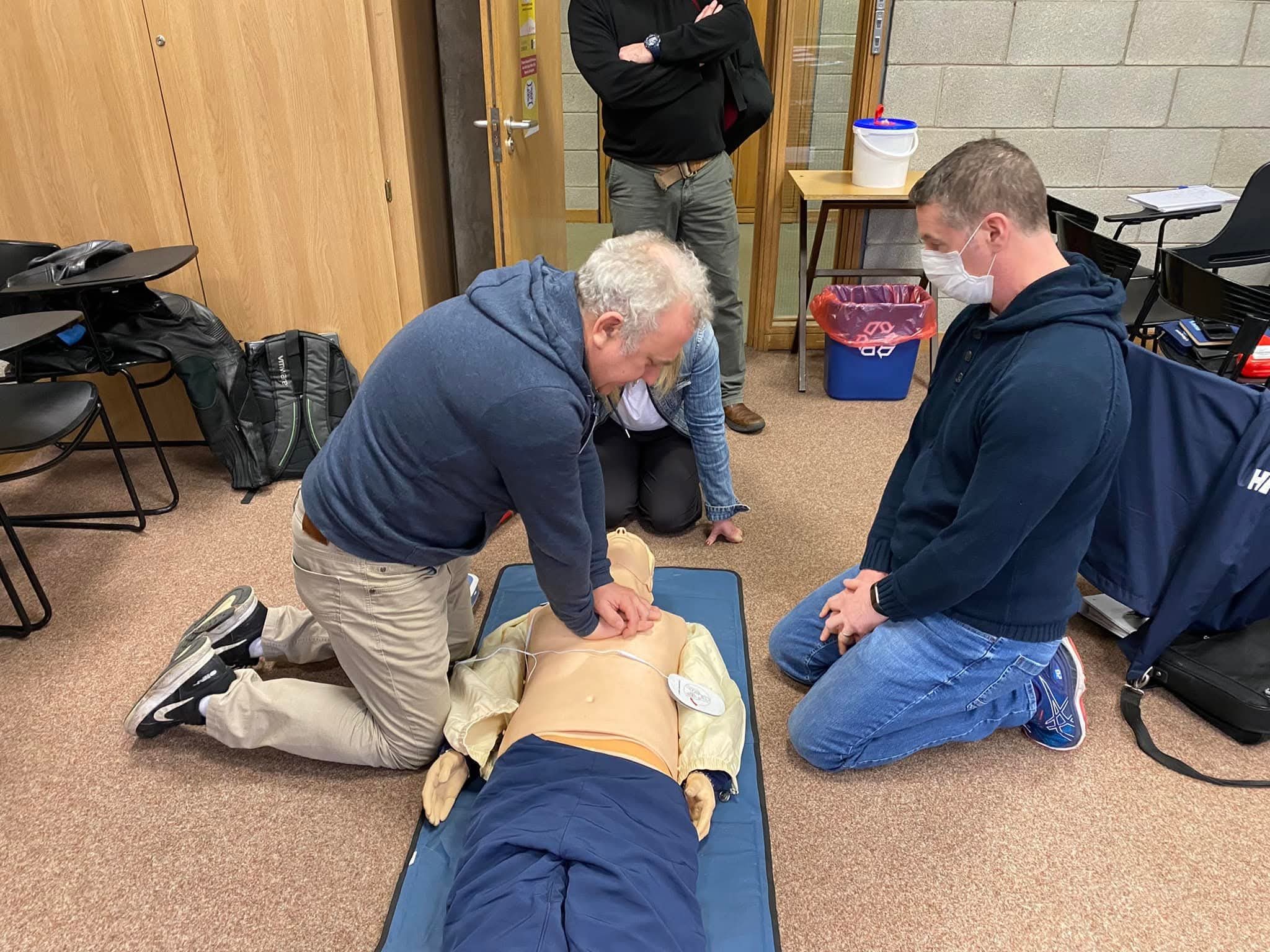
DFR Course
| Starts | Sat 21st Feb at 09:00 |
| Ends | at 16:00 |
| Cost | € 40.00 |
| Max | 12 attendees |
| Type | IN-PERSON Event |
Location: UL Student Centre
Diver First Responder (DFR) Course
This Diver First Responder (DFR) course is listed in the Training & Standards document DI401 Revision No. 18– 25-January-2025, PART B: DIVING COURSES, pages 72-74. We recommend you read the T&S section on Attendance at Courses and Tests (page 35) and are familiar with the Training & Standards document DI401.
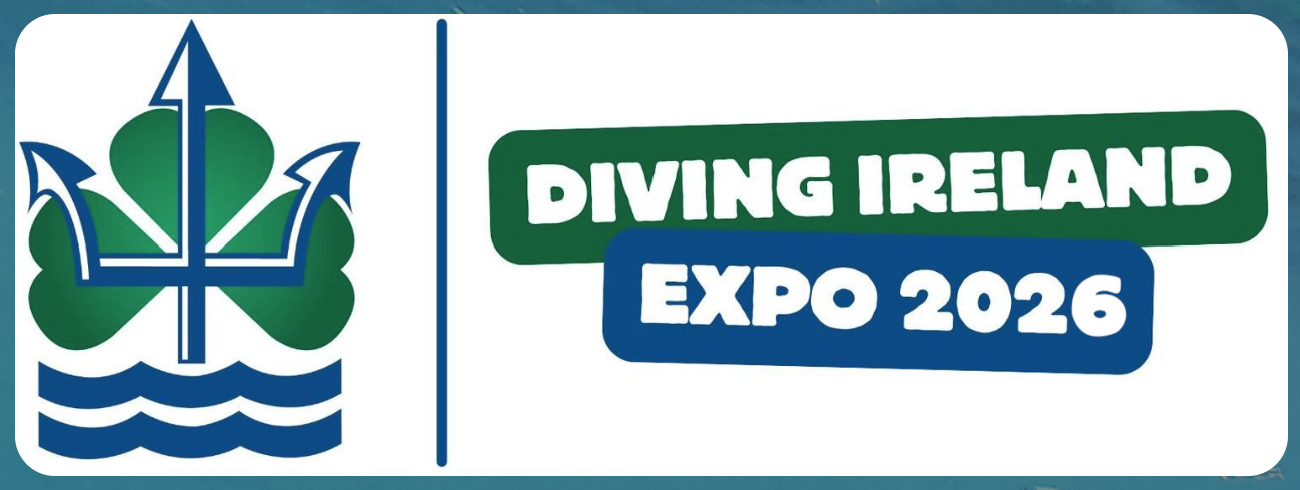
Dive Ireland Expo 2026
| Starts | Sat 21st Mar at 09:00 |
| Ends | Sun 22nd Mar at 20:00 |
| Cost | FREE |
| Max | 20 attendees |
| Type | IN-PERSON Event |
Location: Abbey Court Hotel, Nenagh
Meeting Point: UL Boat House or Abbey Court Hotel Nenag
Join us at the Dive Ireland Expo 2026 in the Abbey Court Hotel, Nenagh, Co. TIpperary this year! Ticket prices will be available closer to the event. We will pay for tickets as a group upon arrival.
Weekly Activity 1
Only logged in / active Sub Aqua Club members can book / attend this activity
Promo Video
About Sub Aqua Club
If you love the water, this club is for you! Here at the Sub Aqua Club, we Dive and Snorkel all around Ireland and internationally. Being based near the Atlantic coast means that some of the best dive sites in Ireland and the World are right on our doorstep! In fact, the University boasts one of the few 50m swimming pools in Ireland as well as the new 25m dive pool which gives us an added advantage for confined water training.
We offer internationally recognized qualifications in diving as well as the opportunity to take part in diving related courses including Oxygen Administration, First Aid and Boat Handling. The club owns and runs the Plassey Bird, our 7m dive RHIB and we are always trying out new dives spots. Although, you can often find us diving at our old regulars during the week such as the beautiful Kilkee, the awe-inspiring Cliffs of Moher, and we even try our hand at examining wrecks from Cork to Donegal; be it boats or World War Submarines! We dive abroad during winter and summer holidays. Whether it’s to reach extreme limits, catch sightings of rare animals, explore shipwrecks, look at slow moving nudibranchs, or just for the peacefulness of it, everybody dives for a different reason!
Our club is recognized for its high standards, commitment to training, inclusivity and its love for Sub Aqua Sports. If you are interested or even a little unsure, check out our stand at the recruitment drive or our online table and talk to one of our members! We're also on Facebook, Instagram and YouTube. Check us out there to see some of the things the club gets up to. So, see you in the pool!
Current Committee 14
| Chairperson | Rob Dunne(He/Him) |
|---|---|
| Secretary | Adam McCarthy |
| Treasurer | Doireann |
| Dive Officer | Patrick |
| Public Relations Officer | Sophie Slater |
| Assistant Chairperson | Michal Kowierec |
| Assistant Equipment Officer | Sergey Beloshapkin |
| Assistant Public Relations Officer | Sarah |
| Assistant Treasurer | CIAN(He/Him) |
| Boat officer | Victor Barfelt |
| Equipment Officer | Eabha Hughes |
| Events Officer | MARCOS GUTIERREZ MUGICA |
| Trainee Rep | Benjamin Seibert |
| Training Officer | Mark |
Sub Aqua Club Gallery
Create your account today
Explore everything that UL Wolves has to offer.
